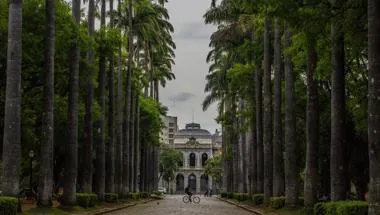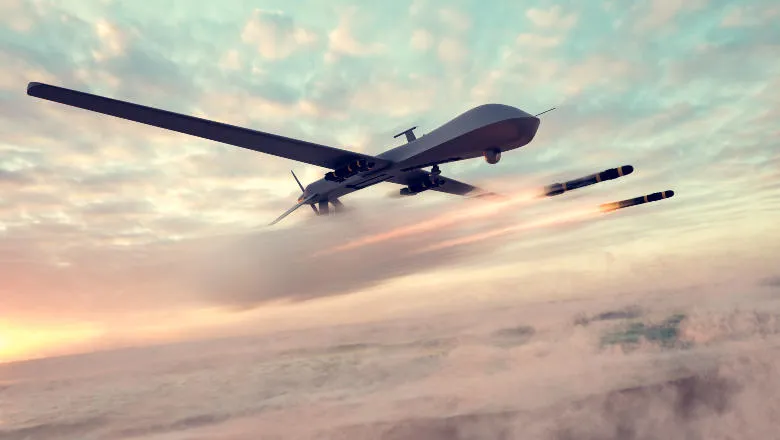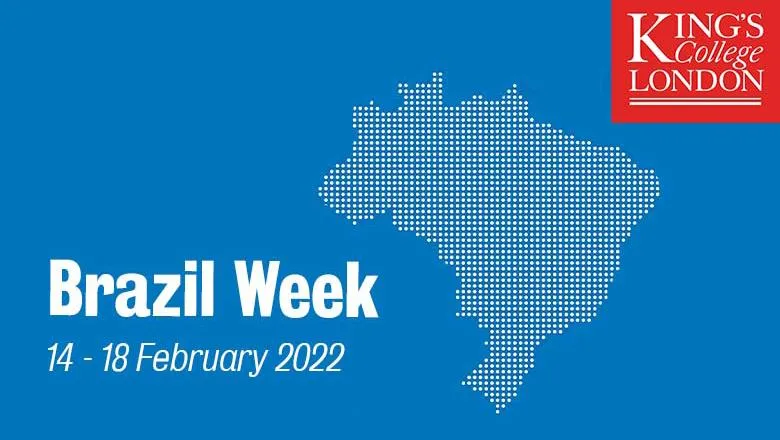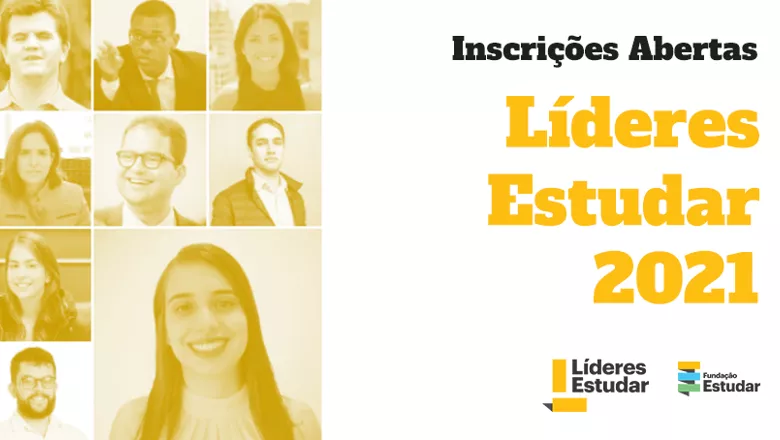
Dr Raphael Lima
Lecturer in War Studies Education
Research interests
- Conflict
- Security
Biography
Dr Raphael C. Lima is a Lecturer in War Studies Education at the Department of War Studies with primary research interests in military innovation and diffusion, emerging technologies, defence, and Latin American security. He is a member of the King's Latin American Security Research Group (LAS), and the Project Lead of the Military Innovation Network (MIN). Dr Lima also has teaching experience across the whole School of Security Studies, teaching as a lecturer in both the Department of War Studies and the Defence Studies Department, alongside policy experience in the Brazilian government in the field of foreign policy, defence, security, and foresight (e.g., SAE/PR, Ipea, and the Brazilian Army).
Research Interests
- Military Innovation & Military Diffusion
- Latin American Security
- Professional Military Education (PME)
- Civil-Military Relations
- Brazilian Foreign Policy
- Foresight
Selected publications
Peer reviewed publications
- Gonzales and Lima (2025), ‘The time of Brazilian defence policy in a changing world.’ Revista Tempo do Mundo, v 37.
- Lima, Nadal, and Terhorst (2025), ‘European Military Innovation in the wake of Russia’s invasion of Ukraine: From Expeditionary Warfare to Territorial Defence.’ European Review of International Studies.
- Carvalho and Lima (2023), ‘Shaping the security-development nexus in Brazil: the military as a development and state-building actor?’. Conflict, Security & Development. v. 23 (2), 105-133.
- Lima, Silva, and Rudzit (2021), ‘No power vacuum: national security neglect and the defence sector in Brazil’. Defence Studies. v. 21 (1), 84-106.
- Lima (2019), ‘Strategic Communications as a Tool for Great Power Competition in Venezuela’. Defence Strategic Communications, v. 6, 89-122.
Research reports
- Barros, Lima, and Barros (2024). ‘The international engagement of the Brazilian defence sector: challenges and opportunities for the new defence documents’ (in Portuguese). Texto para Discussão Ipea, n. 2973.
- Barros, Lima, and Carneiro (2022), ‘Brazil-Venezuela: The Evolution of bilateral relations and implications of the Venezuelan crisis to the Brazilian global insertion’ (in Portuguese). Texto para Discussão IPEA, n. 2761.
Edited volumes
- Andrade, Lange, Medeiros and Lima (eds.) (2019). Contemporary Challenges to the Brazilian Army (in Portuguese).
Policy papers
- Carvalho (ed.), Natale, Lima, Pereira, Passos, Svartman, and Bascule (2022). ‘Defence and security in Brazil: what role for the Parliament?’. KODLA Policy Series 2022, n. 1. King’s Observatory of Democracy in Latin America (KODLA).
Research

Diplomacy, security and defence
This research group asks how the Brazilian state manages its geopolitical situation, to craft its security, defence and foreign policies.
Latin American Security Research Group
The Latin American Security Research Group (LAS) gathers experts working on international relations, defence and security in Latin America.

Military Innovation Network (MIN)
An international and multidisciplinary network devoted to research, and connecting scholars and practitioners working on military innovation and related topics.
Project status: Ongoing
News
Latin American Security Research Group Hosts Brazilian Minister of Defence
On 28 January, the Latin American Security Research Group (LAS) hosted a visit by Brazil’s Minister of Defence, José Mucio Monteiro Filho, for a discussion on...

Call for presentations: Doctoral and Early Career Research Workshop on Military & Defence Innovation
The Military Innovation Network invites doctoral students and early career researchers to submit presentations on issues affecting military innovation.

PhD students to host military innovation and defence workshop at King's
Researchers are invited to present their work on military innovation at the workshop held in May.

Events

Latin America in the Spotlight: Regional Insights into Global Geopolitics
This roundtable will explore how governments, organisations and civil societies across the region interpret these rapidly evolving pressures - and how their...

A Revolution in Military Learning? Good Practices in Lesson-Learning from Ukraine and NATO
The discussion draws on the findings of an ESRC-funded research study on military learning undertaken in cooperation with the armed forces of Estonia, the...
Please note: this event has passed.

Climate, environment and security in the Amazon rainforest
This Roundtable will discuss the Amazon rainforest and its environment impacts the climate and geopolitics in Brazil.
Please note: this event has passed.

Scholarship opportunities for Brazilian students: the Líderes Estudar Programme
This event aims to present funding opportunities for Brazilian students who wish to study at King’s College London.
Please note: this event has passed.
Features
Between Conscripts and Professionals: Challenges for the Brazilian Army in the 21st Century – A Conversation with Dr Sandro Teixeira Moita
On 4 December, the Latin American Security Research Group and the Military Innovation Network hosted Dr Sandro Teixeira Moita of the Brazilian Army Command &...

COP30: Climate, Security and the Amazon: Understanding Environmental Change through Defence and Security Perspectives
The climate crisis is reshaping security landscapes across the world, and nowhere is this more visible than in the Brazilian Amazon. As COP30 enters its...

Researching security and environmental challenges in the Amazon
Student Camille Bacha de Carvalho reflects on her transformative experience during a research trip to the Amazon Rainforest.

Research

Diplomacy, security and defence
This research group asks how the Brazilian state manages its geopolitical situation, to craft its security, defence and foreign policies.
Latin American Security Research Group
The Latin American Security Research Group (LAS) gathers experts working on international relations, defence and security in Latin America.

Military Innovation Network (MIN)
An international and multidisciplinary network devoted to research, and connecting scholars and practitioners working on military innovation and related topics.
Project status: Ongoing
News
Latin American Security Research Group Hosts Brazilian Minister of Defence
On 28 January, the Latin American Security Research Group (LAS) hosted a visit by Brazil’s Minister of Defence, José Mucio Monteiro Filho, for a discussion on...

Call for presentations: Doctoral and Early Career Research Workshop on Military & Defence Innovation
The Military Innovation Network invites doctoral students and early career researchers to submit presentations on issues affecting military innovation.

PhD students to host military innovation and defence workshop at King's
Researchers are invited to present their work on military innovation at the workshop held in May.

Events

Latin America in the Spotlight: Regional Insights into Global Geopolitics
This roundtable will explore how governments, organisations and civil societies across the region interpret these rapidly evolving pressures - and how their...

A Revolution in Military Learning? Good Practices in Lesson-Learning from Ukraine and NATO
The discussion draws on the findings of an ESRC-funded research study on military learning undertaken in cooperation with the armed forces of Estonia, the...
Please note: this event has passed.

Climate, environment and security in the Amazon rainforest
This Roundtable will discuss the Amazon rainforest and its environment impacts the climate and geopolitics in Brazil.
Please note: this event has passed.

Scholarship opportunities for Brazilian students: the Líderes Estudar Programme
This event aims to present funding opportunities for Brazilian students who wish to study at King’s College London.
Please note: this event has passed.
Features
Between Conscripts and Professionals: Challenges for the Brazilian Army in the 21st Century – A Conversation with Dr Sandro Teixeira Moita
On 4 December, the Latin American Security Research Group and the Military Innovation Network hosted Dr Sandro Teixeira Moita of the Brazilian Army Command &...

COP30: Climate, Security and the Amazon: Understanding Environmental Change through Defence and Security Perspectives
The climate crisis is reshaping security landscapes across the world, and nowhere is this more visible than in the Brazilian Amazon. As COP30 enters its...

Researching security and environmental challenges in the Amazon
Student Camille Bacha de Carvalho reflects on her transformative experience during a research trip to the Amazon Rainforest.

